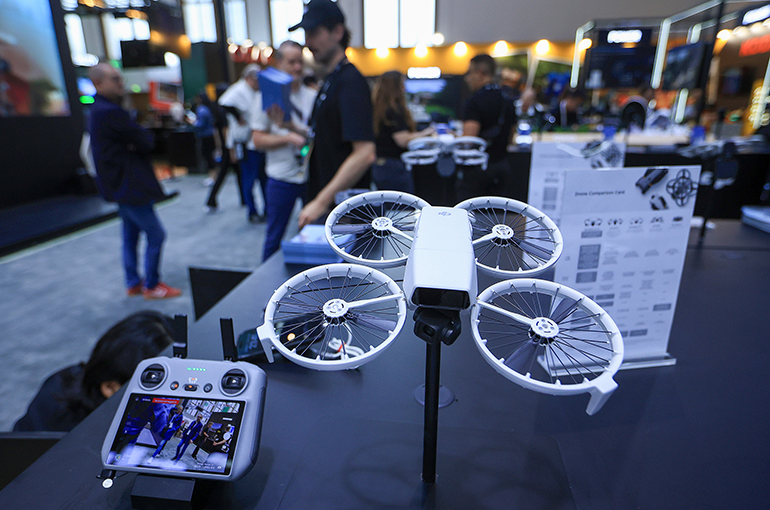Select Language:
Chinese consumer electronics brands are set to continue expanding their footprint in Europe as they match the product quality of well-established competitors who are pulling back from the market, according to the CEO of a leading technology event.
“There’s a strong momentum right now for Chinese brands in Europe,” he said in a recent interview. “Having worked in the consumer electronics industry for many years, I can judge the quality — and it’s now on par with the best. It’s a promising time to enter the market.”
During a recent visit to Shenzhen for meetings with major Chinese tech firms that participated in the IFA trade show last month, including TCL and DJI, he identified a key strategic opportunity for Chinese companies in Europe due to the retreat of Japanese competitors.
“Sony is losing market share in Europe, particularly in Germany, while Panasonic has announced plans to exit the TV consumer electronics sector. This creates space for Chinese manufacturers,” he explained. “Currently, Hisense ranks third and TCL fourth in Germany.”
The most notable opportunities for Chinese brands are in Germany’s high-end segment, where products priced above €2,300 (around USD 2,450) account for nearly 28% of sales. Independent retailers, who previously relied on Japanese brands, are actively seeking new alternatives.
Strategic Shifts Underpinning Chinese Tech Success in Europe
He attributed the success of Chinese companies in Europe to a fundamental change in their approach, extending beyond product quality alone. “The perception of Chinese products has significantly improved over the past five or six years,” he noted.
This shift is also influenced by the perception of Chinese brands as innovative and reliable, especially driven by companies like BYD in the electric vehicle sector. “Consumers now understand that Chinese firms are capable and intelligent, which creates positive momentum.”
A few years ago, many Chinese companies believed success relied on following a specific formula. “Now, they’re more receptive to local needs and more adaptable,” the executive said. However, he emphasized that after-sales service remains a critical, often overlooked aspect.
“Many companies see after-sales support as just a cost, but if you want to build a strong brand and generate positive word-of-mouth on social media, you need to invest in it. Think of it as a marketing expense,” he explained.
He also warned against overextending market ambitions, urging companies to be bold but not arrogant. “Some firms, like BYD, have scaled back their marketing efforts in Germany to avoid the perception that Chinese companies are becoming too dominant,” he added.
Chinese Companies in Europe Amid U.S.-China Trade Tensions
Trade tensions between the U.S. and China have acted as an additional catalyst, accelerating Chinese companies’ focus on Europe, though this was not the main driver, he said. “If a car is already moving fast, say at 150 mph, tariffs pushed it to 190 mph — it was fast before, and the tensions just made it faster.”
Over 700 Chinese firms participated in this year’s IFA, compared to 420 the previous year, making up over 30% of the exhibitors. They showcased innovations including AI-powered home appliances, next-generation displays, robots, and energy storage systems.
The rising Chinese presence at IFA underscores their growing strength in advanced technologies and their drive to expand international cooperation through independent innovation.
Looking ahead to next year’s event, he expects artificial intelligence to remain the main driver of growth, with Chinese companies’ strengths in this area further boosting their position in Europe.






